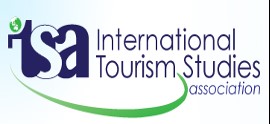FROM SERVICE QUALITY TO TOURIST EXPERIENCE: A REVIEW FROM SERVQUAL TO CONSUMER NEUROSCIENCE
Location
Gran Canaria
Participation
Attend the conference at Gran Canaria in person.
Type of Submission
Paper Presentation
Short Abstract
This article aims to analyse the conceptual and methodological changes in tourism experience research based on the lessons learned in the literature on marketing, quality, and service management, with the incorporation of more advanced study techniques, such as neuromarketing. As a reference scale in the literature on service quality, SERVQUAL tries to measure service quality from the customer's perspective through self-report research methods. Several studies on tourist behaviour have analysed service quality using SERVQUAL. Moreover, the literature recognizes the need to include emotions and cognitions in consumer behaviour research. As several studies also use self-report measures to assess emotions in consumer behaviour, the literature is turning its attention to new techniques. In this new research approach, terms such as neuroscience, consumer neuroscience, and neuromarketing appear. From a literature review, the results suggest that the effectiveness of tourism experience management requires the integration of lessons learned in the classic consumer behaviour literature with the results of the application of more innovative methods and techniques from neuroscience. Neuroscience techniques provide objective and unbiased data, measure unconscious responses, and facilitate real-time feedback. As a result, neuroscience methods could reveal new dimensions or attributes of customer experience quality, not captured in SERVQUAL, that would improve service experience design in tourism. The literature recommends combining various methods (e.g., self-report and eye-tracking) to draw a holistic perspective of tourism behaviour, measuring emotions and cognitions, and advancing neuroscience techniques.
FROM SERVICE QUALITY TO TOURIST EXPERIENCE: A REVIEW FROM SERVQUAL TO CONSUMER NEUROSCIENCE
Gran Canaria
This article aims to analyse the conceptual and methodological changes in tourism experience research based on the lessons learned in the literature on marketing, quality, and service management, with the incorporation of more advanced study techniques, such as neuromarketing. As a reference scale in the literature on service quality, SERVQUAL tries to measure service quality from the customer's perspective through self-report research methods. Several studies on tourist behaviour have analysed service quality using SERVQUAL. Moreover, the literature recognizes the need to include emotions and cognitions in consumer behaviour research. As several studies also use self-report measures to assess emotions in consumer behaviour, the literature is turning its attention to new techniques. In this new research approach, terms such as neuroscience, consumer neuroscience, and neuromarketing appear. From a literature review, the results suggest that the effectiveness of tourism experience management requires the integration of lessons learned in the classic consumer behaviour literature with the results of the application of more innovative methods and techniques from neuroscience. Neuroscience techniques provide objective and unbiased data, measure unconscious responses, and facilitate real-time feedback. As a result, neuroscience methods could reveal new dimensions or attributes of customer experience quality, not captured in SERVQUAL, that would improve service experience design in tourism. The literature recommends combining various methods (e.g., self-report and eye-tracking) to draw a holistic perspective of tourism behaviour, measuring emotions and cognitions, and advancing neuroscience techniques.
https://docs.lib.purdue.edu/itsa/ITSA2022/ITSA2022/29


